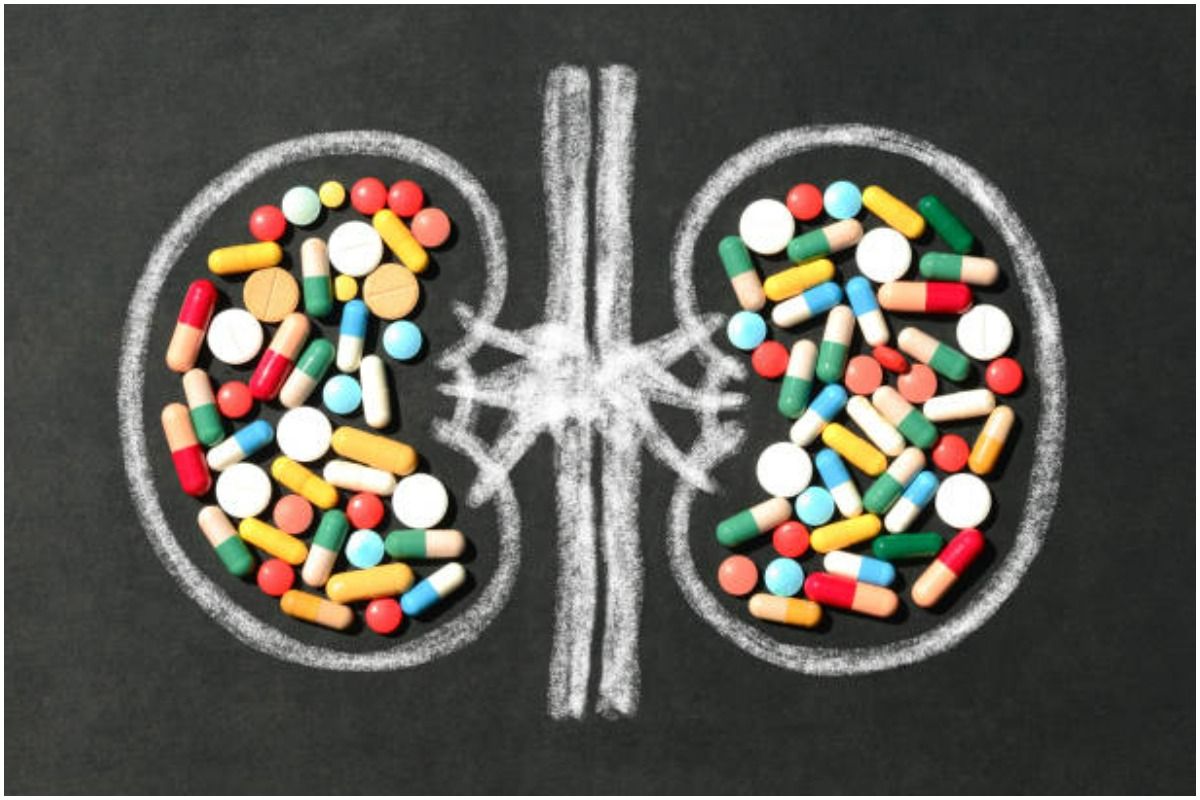World Kidney Day 2022: Adolescents, children and adolescents share about 5% of the population suffering from chronic kidney disease. The 10-year survival rate in this population ranges from 70 to 85%. Despite such a high survival rate, the mortality rate is 30 times higher than healthy people in the same age group.Also read – World Kidney Day 2022: 6 Ways to Care for Kidneys for Diabetics
Kidney disease in youngsters
Hypertension and diabetes are the two most common causes of chronic kidney disease (CKD) in adults. These two diseases are not very common in adolescents. However, due to unhealthy lifestyle and bad eating habits, more and more young people are now susceptible to these diseases which has resulted in increased risk of developing CKD. Other causes of CKD in these patients include reflux nephropathy, autoimmune diseases, nephrotic syndrome, nephritis and urinary tract infections. Also read – World Kidney Day 2022: From cabbage to cauliflower, here are 5 foods to keep the kidneys healthy
Warning signs present in adolescents with CKD include hypertension, extreme weakness and fatigue, weight gain or slow growth, loss of appetite, frequent headaches, abdominal pain, lower back pain, vague low-grade fever, and cloudy and unpleasant smelling urine. Sickness and mortality in these patients are usually due to infection and cardiovascular causes rather than renal failure. Also read – World Kidney Day 2022: 8 Healthy Habits to Keep Your Kidney Healthy
The advanced stage of CKD requires dialysis and / or kidney transplant. Transplant is the best option for end stage kidney diseases. The nephrologist may recommend other options such as home hemodialysis, peritoneal dialysis, in-center dialysis and in-center nocturnal dialysis, which are also suitable for this age group. Dialysis filters blood and removes waste through an external machine.
Once dialysis is started, the lives of young people change significantly. Young people should ask the doctor what activities they can continue with, such as playing certain sports. Girls may have irregular menstruation or not at all. Adolescents undergoing dialysis may experience anger, frustration, and irritability. Some patients undergoing dialysis may need renal transplantation.
Tips for keeping the kidneys healthy
Some steps help maintain kidney health. Some of them are:
- Exercise: Regular exercise reduces the risk of CKD. It improves heart health and manages overall cardiovascular health. To maintain a fit and healthy body a person can walk, cycle or run regularly.
- Monitor blood pressure: Persistent high blood pressure is an important risk factor for kidney disease. If high blood pressure is associated with obesity or diabetes, the effects on the kidneys are more severe. Therefore, people should control their blood pressure normally.
- Drink plenty of fluids: Drinking enough water is good for kidney health. It helps to remove excess sodium and toxins from the blood.
- Maintain blood sugar: Prolonged high blood sugar also increases the risk of kidney damage. The kidneys are under constant stress to remove sugar from the blood. It is important to maintain blood sugar.
- Weight management: People who are obese or overweight are at risk for a number of medical conditions, such as diabetes and hypertension. Such conditions increase the risk of kidney disease. Maintaining a healthy weight reduces the risk of kidney disorders.
- Quit smoking: Smoking has a negative effect on the body’s blood vessels, including the kidneys. It will interfere with the blood supply to the kidneys, resulting in kidney damage. Quitting smoking reduces this risk.
- Regular kidney function testing: People, especially those at high risk of kidney disease, should have regular renal examinations. It will help in the diagnosis and management of the disease at an early stage.
- Avoid taking over-the-counter medications: You should not regularly take over-the-counter medications such as non-steroidal anti-inflammatory drugs as they can damage the kidneys.
Effect of dialysis and kidney transplant on male fertility
Decreased fertility in patients with chronic kidney disease. It can be for many reasons. Testosterone levels decrease in patients with ESRD. More than 50% of patients with CKD have hypogonadism. Studies have also shown that in patients with CKD, there is a decrease in leukemia cell suppression and anti-Mularian hormone levels. There is also a decrease in the number and quality of sperm in patients with CKD. Patients with hemodialysis have a 50% reduction in sperm motility, efficiency, and morphology. Long-term dialysis results in a decrease in testicular volume, which progresses as the frequency of hemodialysis increases. Uremia is the most common cause of altered sperm motility and morphology.
People with CKD and dialysis also suffer from low libido and erectile dysfunction. This may be due to the direct effect of CKD on the nervous system or the presence of underlying medical conditions such as hypertension or diabetes. Psychogenic erectile dysfunction can also be caused by anxiety and depression and poor body image. It has been noted that even in the absence of hormonal changes and semen quality, men with CKD can only become infertile due to erectile dysfunction. Kidney transplantation improves fertility by restoring hormonal balance and reducing erectile dysfunction.
(With inputs from Dr. Girish NS, Consultant – Nephrology, Manipal Hospital Hebbal)
